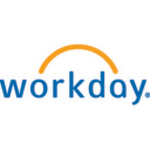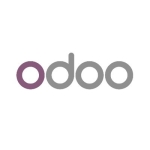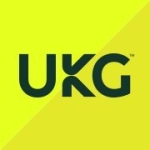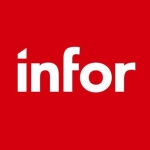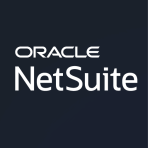
Product Development Manager at a comms service provider with 10,001+ employees
Offers valuable finance tools
Pros and Cons
- "Its drag-and-drop features make data distribution a breeze."
- "It is on the expensive side."
How has it helped my organization?
What is most valuable?
In my EBS experience, the finance tools stand out for their efficiency. Transitioning to Oracle E-Business Suite has been a game-changer. As someone with a background in user experience development, I quickly adapted to its user-friendly interface within days. The graphical dashboards and reports, previously requiring extensive technical effort in EBS, are now effortlessly presented in Oracle E-Business Suite. Its drag-and-drop features make data distribution a breeze. Overall, Oracle E-Business Suite's intuitive design and powerful insights make it a standout for cloud-based business operations.
What needs improvement?
The only thing that could be improved is the pricing. It is on the expensive side.
For how long have I used the solution?
I have been working with Oracle E-Business Suite since 2012.
Buyer's Guide
Oracle E-Business Suite
December 2025
Learn what your peers think about Oracle E-Business Suite. Get advice and tips from experienced pros sharing their opinions. Updated: December 2025.
879,422 professionals have used our research since 2012.
What do I think about the stability of the solution?
The stability of Oracle E-Business Suited depends on the partner handling the deployment. With the right deployment, issues are rare and mostly stem from hardware or database maintenance. I haven't encountered many bugs in the system itself, so it is generally quite stable. I would give it a nine out of ten for stability.
What do I think about the scalability of the solution?
I would rate the scalability as an eight out of ten. We have approximately 240 clients using the solution.
How are customer service and support?
I would rate Oracle technical support as a seven out of ten. They are generally helpful, but the key concern is their commitment to response time rather than resolution time.
How would you rate customer service and support?
Neutral
Which solution did I use previously and why did I switch?
At my previous company, we used both Oracle and SAP. While SAP is known for manufacturing, the decision to choose Oracle was driven by the superior financial capabilities, especially in EBS, and the robustness of Oracle, being a true cloud solution. Unlike SAP, Oracle's approach to the cloud is more native, offering a distinct advantage.
How was the initial setup?
Deploying Oracle E-Business Suite, the cloud version, is straightforward - no need for complicated setups. Just choose a username and password, and you are ready. Configuration tasks like workflows and organization structures are handled by partners like Triad. Unlike traditional software, Oracle doesn't require deploying databases, making it hassle-free. The timeline for implementation varies. Simple processes may take three to four months following the Oracle Unified Method. However, more complex modules like manufacturing could extend to around six months. The duration also depends on client involvement, from gathering requirements to user acceptance testing. It is a collaborative effort with both the partner and the client. I am involved in troubleshooting and providing Managed Services and SNA. After a system goes live, clients often need ongoing support, especially if they lack a dedicated IT team. We step in as tier one or tier two support, offering what some call "day two services." It is a crucial part of our service portfolio and ensures comprehensive 360-degree support for our clients.
What was our ROI?
Oracle E-Business Suite brings time savings by minimizing manual work and provides enhanced visibility into processes and inventory. From a return on investment perspective, the benefits are substantial.
What's my experience with pricing, setup cost, and licensing?
Oracle E-Business Suite is pricey, but it is worth the money. I would rate it as an eight out of ten in terms of costliness.
What other advice do I have?
Overall, I would rate Oracle E-Business Suite as a nine out of ten.
Disclosure: My company has a business relationship with this vendor other than being a customer.
Senior System Administrator at a mining and metals company with 1,001-5,000 employees
A stable solution with excellent finance and asset management features
Pros and Cons
- "Financial and asset management features are valuable."
- "The initial setup is complex."
What is our primary use case?
We use the solution for our mainstream business. We use it for financial, procurement, and asset management.
What is most valuable?
Financial and asset management features are valuable.
What needs improvement?
The initial setup is complex.
For how long have I used the solution?
I have been using the product for almost ten years.
What do I think about the stability of the solution?
The tool is stable.
What do I think about the scalability of the solution?
Oracle provided us with one or two solutions. When we purchased the products, Oracle gave us scalable solutions. Almost 180 people are using the solution in our organization. The number of users will decrease after the upgrade process.
How are customer service and support?
We raise service requests to Oracle.
How was the initial setup?
The deployment took one and a half years. The solution is deployed on-premises. The deployment process has two phases. It took us nearly two years. We need at least ten people to deploy the product.
What about the implementation team?
We contacted Deloitte to deploy the solution.
What was our ROI?
The product is worth the money.
What's my experience with pricing, setup cost, and licensing?
We need to pay for the license annually. The solution is quite expensive.
What other advice do I have?
We are not using the latest version of the solution. We are planning to change the product. We are researching ERPs from SAP, Oracle, and Microsoft. We decided to use Oracle ten years ago. We are more interested in Microsoft Dynamics because we use Microsoft products like Microsoft 365 and Teams.
Currently, we are upgrading the software. We contacted Oracle to upgrade the tool. I would recommend the solution to others, but we faced some issues. We couldn't upgrade to the latest version. We don't have the latest version of the database or application.
Overall, I rate the solution an eight out of ten.
Which deployment model are you using for this solution?
On-premises
Disclosure: My company does not have a business relationship with this vendor other than being a customer.
Buyer's Guide
Oracle E-Business Suite
December 2025
Learn what your peers think about Oracle E-Business Suite. Get advice and tips from experienced pros sharing their opinions. Updated: December 2025.
879,422 professionals have used our research since 2012.
Head of IT Operations at a pharma/biotech company with 1,001-5,000 employees
Highly scalable, stable, and has automation and integration features
Pros and Cons
- "I like the automation and integration features of Oracle E-Business Suite."
- "A downside of Oracle E-Business Suite is its interface because it's less user-friendly than the latest cloud solutions. As an organization, Oracle now has more interest in cloud applications, so nowadays, it doesn't focus much on Oracle E-Business Suite, an on-premises solution, so this is another downside."
What is our primary use case?
We are a large company using every function of Oracle E-Business Suite, such as human capital management, financial management, manufacturing, plant maintenance, and many more. We've implemented almost thirty-seven modules of Oracle E-Business Suite in our organization.
How has it helped my organization?
Oracle E-Business Suite improved my organization by automating every function and integrating all departments. For example, HR is integrated with Finance through the payroll module. Inventory is integrated with Finance through the inventory module. Plant maintenance is integrated with the stores and spheres, so there's a single source of truth across the organization. There's no need to maintain separate databases, software, or functions within the organization through Oracle E-Business Suite.
My organization uses the same source of truth, so there's less hassle and more accurate information, making decision-making easier because of this solution.
What is most valuable?
I like the automation and integration features of Oracle E-Business Suite.
What needs improvement?
A downside of Oracle E-Business Suite is its interface because it's less user-friendly than the latest cloud solutions.
As an organization, Oracle now has more interest in cloud applications, so nowadays, it doesn't focus much on Oracle E-Business Suite, an on-premises solution, so this is another downside.
In the next release of the solution, I want to see an enhanced GUI so that it can attract more users and for Oracle to focus more on Oracle E-Business Suite and make it more user-friendly.
For how long have I used the solution?
I've been using Oracle E-Business Suite for twelve years.
What do I think about the stability of the solution?
Oracle E-Business Suite is pretty stable, and I'd rate it as nine out of ten, stability-wise.
What do I think about the scalability of the solution?
Oracle E-Business Suite is a highly scalable solution, and I'd rate its scalability as ten out of ten.
How are customer service and support?
Oracle E-Business Suite technical support is a seven out of ten for me.
How would you rate customer service and support?
Neutral
Which solution did I use previously and why did I switch?
We've used custom and in-house solutions before using Oracle E-Business Suite. Still, because of the benefits, scalability, integration, and support we got from the solution, we went with Oracle E-Business Suite.
How was the initial setup?
As Oracle E-Business Suite is an ERP system, it has a complex implementation process. It's unlike any other software you can install and start using immediately. The system requires installation, then configuration, so depending on the complexity of the business, it takes around three to six months to configure and run it within the organization.
Installing the software onto the server, for example, isn't a matter of one to two days maximum. The steps to deploy Oracle E-Business Suite depend on your business requirement, how you map your business requirements into the system, and how you want the system to operate according to your needs. It varies based on the complexity of your business where Oracle E-Business Suite would be implemented.
What about the implementation team?
The first time Oracle E-Business Suite was implemented, configured, and integrated with our systems, we worked with a third party who was an expert, so we won't run into cost overruns.
What was our ROI?
The digitization projects we implemented in multiple areas resulted in millions of savings because Oracle E-Business Suite helped keep queries simpler, so there's ROI from the solution.
My organization has been using the solution for the past twelve years, so I'm sure it paid off, but I have yet to calculate the ROI.
What's my experience with pricing, setup cost, and licensing?
Pricing for Oracle E-Business Suite is seven out of ten. You must pay extra for maintenance and technical support, apart from standard license fees.
Which other solutions did I evaluate?
Since we've been using Oracle E-Business Suite for twelve years, we've evaluated different solutions from time to time but eventually chose SAP as our primary solution.
What other advice do I have?
I'm using the latest version of Oracle E-Business Suite.
Two or three people can maintain Oracle E-Business Suite for a small organization. Still, for a vast implementation, for example, within my organization, about twenty-five to thirty people handle the maintenance of the solution.
Around two thousand to three thousand people use Oracle E-Business Suite within the organization.
All departments use the solution, whether Presales, Sales, Finance, Plant Maintenance, HR, Compensation, Payroll, etc.
I recommend Oracle E-Business Suite, but since the newest technology is now on the cloud, I wonder if people would be interested in an on-premise solution.
I'd rate the solution eight out of ten because the GUI needs improvement. I would give Oracle E-Business Suite a nine or ten if its GUI were improved.
My company is simply an Oracle customer.
Disclosure: My company does not have a business relationship with this vendor other than being a customer.
Assistant Consultant at a performing arts with 51-200 employees
Useful to deal in areas like supply chain management and WMS
Pros and Cons
- "The technical support for the solution was very good."
- "The integration features of the tool on on-premises weren't that great, making it an area where improvements are required."
What is our primary use case?
I use the solution in my company for supply chain management. I also use the tool to deal with WMS implementation.
What needs improvement?
The integration features of the tool on on-premises weren't that great, making it an area where improvements are required.
For how long have I used the solution?
I have been using Oracle E-Business Suite for seven years.
How are customer service and support?
The technical support for the solution was very good. I rate the technical support a nine out of ten.
How would you rate customer service and support?
Positive
How was the initial setup?
The solution is deployed on an on-premises model.
The solution can be deployed in a few months.
What was our ROI?
Overall, the tool reduces customer capital expenditure. It is difficult to explain the actual reduction in capital expenditure, considering that my company deals with a huge customer base, in which a lot of things are absorbed, and there are a lot of complexities involved in supply chain management. The tool provides value for money.
What's my experience with pricing, setup cost, and licensing?
Products concerning areas like CRM and ERP should provide value at lesser costs to customers, especially if you consider that the initial cost of implementation is high.
What other advice do I have?
The area of service planning was neither very difficult nor very easy.
Oracle E-Business Suite has impacted our business process from the standpoint of KPIs.
The features of the product were not useful for me since they were mostly used to help my customers.
The tool's integration capabilities were standard in nature since the product is deployed on an on-premises model.
The tool was integrated with a lot of other legacy solutions and Oracle Siebel CRM because it was on an on-premises deployment model, but not everything was as fast as things are on the cloud, so there was the need to have multiple devices in our infrastructure.
The tool has had an impact on industry-specific solutions in our company's customers' operations since it gives customers autonomy over third-party logistics and service providers. The tool also helps to reduce the problems in the supply chain management.
I recommend the tool to enterprise-sized businesses. The problem with Oracle is that it comes with everything and may contain certain modules that customers don't need. With Oracle products, since you get a lot of features, the prices are pushed up. The tool can only be used by those who start off as a reseller and want to become a manufacturer in the future since it helps to manage both workloads.
Considering that it is one of the best tools I have worked with, I rate the tool an eight out of ten.
Which deployment model are you using for this solution?
On-premises
Disclosure: My company has a business relationship with this vendor other than being a customer. partner
Senior Manager / IT Planning & Architecture Services at a comms service provider with 10,001+ employees
It adapts to our business rules, so we don't have to change them.
Pros and Cons
- "Oracle EBS adapts to our business rules, so we don't have to change them, whereas SAP is rigid. We need to change our business rules to implement SAP. Oracle's reporting is also excellent and it's easier for our technical team to customize the solution compared to SAP, Microsoft Dynamics, and other products."
- "Oracle is easy to implement at a new organization like ours, but it might be more challenging for an established organization with more rules and policies in place."
What is our primary use case?
Our use case is primarily finance and procurement. We have a procurement team, a finance department, and some managers responsible for approving a procurement request. We also have users who build and customize reports for board members, senior management, or auditors.
We plan to adapt Oracle EBS to integrate with our CRM, HR, and other applications. It provides financial insights and covers payroll, so it needs to be combined with the project portfolio management solution or the CRM. We have many changes ready for when we go live with the CRM.
How has it helped my organization?
Oracle EBS is flexible enough for any use case, allowing us to configure the changes we want how we want.
What is most valuable?
Oracle EBS adapts to our business rules, so we don't have to change them, whereas SAP is rigid. We need to change our business rules to implement SAP. Oracle's reporting is also excellent and it's easier for our technical team to customize the solution compared to SAP, Microsoft Dynamics, and other products.
What needs improvement?
Oracle is easy to implement at a new organization like ours, but it might be more challenging for an established organization with more rules and policies in place. I don't have many feature requests because we are still in the early stages. I'm currently trying to gather all the small change requests that arise out based on our business requirements.
For how long have I used the solution?
We have been using Oracle EBS for a year and a half.
What do I think about the stability of the solution?
Oracle EBS is highly stable.
What do I think about the scalability of the solution?
Oracle technology is advanced, so it shouldn't be a problem to increase capacity by adding configurations or reporting. Almost everything is there.
How are customer service and support?
I rate Oracle support eight out of 10. They're really fast.
Which solution did I use previously and why did I switch?
We were using different solutions in silos. For example, there was one for inventory called Maximo and another for finance. All those systems were in silos, so we wanted to replace them with a single ERP system that offers a 360-degree view of data and precise reporting without the need to change many things in the data.
We wanted to avoid many manipulations by manual editing errors. Having everything in one system gives you complete native automation built into the system.
How was the initial setup?
It was not complicated, but you need a business analyst to bridge the gap between the implementation team and the business team. We had around three people on our team. We still haven't fully deployed it, but the expected duration is about nine months.
It's not implementation time per se. It's more like evaluating the solution to understand the strengths and weaknesses of the product. After deployment, you don't need to maintain anything. Some change requests crop up now and then from the business team. They ask us to adjust the business rules or transfer the approval authority from one person to another because someone has left the company or gone on vacation.
You need someone with technical expertise, and Oracle-certified engineers are somewhat costly compared to other ERP products. For example, there's a German ERP product with an easy mechanism that allows any software programmer to change the configuration. Still, Oracle, SAP, and Microsoft Dynamics require certified professionals to change the configurations.
What about the implementation team?
We used an integrator because we lack in-house expertise with Oracle ERP.
We have a technical team and a business analyst, but we don't have the knowledge to handle Oracle ERP onboarding.
What was our ROI?
When we evaluate a solution, we assess whether implementing it is useful for the business. You can gain many benefits in terms of productivity and operations by using an ERP solution. Oracle has advantages over other products because they are well established and mature in the market.
What's my experience with pricing, setup cost, and licensing?
I don't know the precise details about pricing because I am from the project management side, and another team handles procurement, but if I had to estimate, I would say it's probably around eight out of 10 for affordability.
Of course, it depends on which modules you select. There is not standard price. You need to dig into the exact pricing for your requirements. It's not a single one bundled. There is a named user license plus some module licenses.
What other advice do I have?
I rate Oracle E-Business Suite eight out of 10. I believe going to the cloud is much easier and faster. I advise people not to make a lot of changes initially. Implement it the way it is in the first round so you can leverage the benefits immediately instead of adding a lot of customization in the Oracle ERP.
Disclosure: My company does not have a business relationship with this vendor other than being a customer.
Senior Functional Architect (Oracle ERP) at a non-profit with 10,001+ employees
Helpful technical support, strong integration capabilities, and is easy to use
Pros and Cons
- "It's a scalable product."
- "The initial setup is complex."
What is our primary use case?
We are primarily using this solution for financial reporting, financial management reporting, and consolidation.
What is most valuable?
The solution offers strong integration capabilities. It's balanced and sends good reports. It's easy to use.
The solution is stable.
It's a scalable product.
Technical support has been great.
What needs improvement?
The solution could be improved especially for budgeting. We are using budgeting in GL, which is a basic budgeting module. We need enhanced budgeting and a few other parts. For example, we need supply chain. That's based on financial health. Currently, we are using financials, however, in financials, most of what we are missing is enhanced budgeting. I want an enhanced budgeting module.
The initial setup is complex.
I want built-in dashboards.
I also would like more center reports or center reports like FSG. It's only available in GL and I want FSG in other modules as well.
For how long have I used the solution?
I've been using the solution for a while now.
What do I think about the stability of the solution?
The solution is stable. It's reliable. There are no issues with bugs or glitches and it doesn't crash or freeze.
What do I think about the scalability of the solution?
The solution is scalable. You can expand it easily.
We have 15 to 20 people using the solution currently. They include managers, super-users, supervisors, and accountants.
How are customer service and support?
Technical support is quite good.
How would you rate customer service and support?
Positive
Which solution did I use previously and why did I switch?
We did not previously use a different solution.
How was the initial setup?
The initial setup is not simple. it's quite complex, very difficult. In terms of ease of implementation, I'd give it a 3.5 out of five.
We implemented it a long time ago before I was a part of the organization, however, it tends to take seven to eight months.
What about the implementation team?
The initial setup was handled by Oracle partners.
What's my experience with pricing, setup cost, and licensing?
I can't speak to the licensing costs. I don't have any details in regard to pricing.
What other advice do I have?
I'm working with this solution on behalf of an organization.
We're using version 11 right now, and we're about to update to 12.2.8.
This is a good product. If you have a good start, then you can easily implement the solution. An Azure study is the most important thing, however.
I'd rate the solution nine out of ten.
Which deployment model are you using for this solution?
On-premises
Disclosure: My company does not have a business relationship with this vendor other than being a customer.
Chief Financial and Operating Officer at a tech services company with 11-50 employees
Adaptable to the finance industry, stable product but more automation could be introduced
Pros and Cons
- "It is quite stable."
- "A lot more automation can be brought into E-Business Suite."
What is our primary use case?
I don't use it directly. I'm a contractor, but my customers use it. They use this solution in their daily business operations.
It's more on the CX Suite, Oracle CX, but on the cloud that we run in combination with other ERP systems.
What is most valuable?
Oracle Cloud or Oracle JD Edwards has a better future than E-Business Suite. I don't think it has a very long lifespan.
Oracle Cloud software, like Fusion.
It's an integrated ERP system. It's very adaptable to the finance industry. It's quite stable for the finance industry. We've also rolled it out for small manufacturing and operational production.
The supply chain management capabilities are good in this product.
What needs improvement?
I think a lot more automation can be brought into E-Business Suite.
For how long have I used the solution?
I have been working with it since 2017.
What do I think about the stability of the solution?
It is quite stable. Overall, I would rate the stability of this solution an eight out of ten.
What do I think about the scalability of the solution?
I'm satisfied with the scalability. It's quite scalable. These days, Oracle has made sure that you can adjust most of the on-premises applications with any other interfaces that are already in place for other cloud solutions. And you can even go in and do customization on the application if need be.
It is suitable for medium-sized businesses.
How are customer service and support?
The customer service and support are a little bit slow, but it's not too bad.
How would you rate customer service and support?
Neutral
How was the initial setup?
The initial setup is not that complex.
It's on-premises. The deployment would take a few weeks.
What's my experience with pricing, setup cost, and licensing?
The pricing is a little bit high because it's on-premises, users would expect to get a little bit more of a discount on the actual application, but it's not. But that's the strategy of Oracle.
Oracle wants to go completely cloud, so they do update the pricing on on-premises applications a little bit more. But they're quite adaptable, so it's not that they're not able to give discounts or things like that.
It is kinda room for improvement for Oracle, wherein they could introduce more discounts.
What other advice do I have?
I would recommend it to the financial industry.
Overall, I would rate it a seven out of ten.
Disclosure: My company has a business relationship with this vendor other than being a customer. Partner
Chief Technology Officer at a consumer goods company with 1,001-5,000 employees
Easy to set up and good for financial reporting but cannot do production
Pros and Cons
- "It was easy to set up the product."
- "The operations could be better, specifically for manufacturing processes."
What is our primary use case?
We primarily use the solution from an ERP standpoint. We use it for procurement processes, operations, sales, finance, accounting, reporting, all of it.
What is most valuable?
The ease of use is great.
It was easy to set up the product.
The stability is good.
Technical support is helpful.
It is not overly expensive.
What needs improvement?
The operations could be better, specifically for manufacturing processes. There could, for example, be some sort of forecasting available. We need more planning and scheduling options. They need more analytical capabilities.
It can't really scale.
For how long have I used the solution?
I've been using the solution for seven years.
What do I think about the stability of the solution?
It's quite stable. The in-business application has been fantastic, and we haven't had any issues. There are no bugs or glitches. It doesn't crash or freeze. It's about 95% stable.
What do I think about the scalability of the solution?
This isn't a very scalable product if you have to expand it into a different line of business.
In our organization, we have more than 250 people using it.
How are customer service and support?
We've contacted support quite a bit in the past. They're pretty good at helping us. They are responsive.
How would you rate customer service and support?
Positive
Which solution did I use previously and why did I switch?
I'm also familiar with SAP and find this solution's annual contracts and maintenance cheaper than SAP.
How was the initial setup?
The solution was very simple to set up. It was not complex at all. The deployment itself took about four months.
What's my experience with pricing, setup cost, and licensing?
The solution is not very expensive. It is worth the money.
Which other solutions did I evaluate?
I have been looking into SAP and Microsoft Dynamics to compare a few things.
What other advice do I have?
I'm an end-user.
Whether or not I would recommend the solution to others depends on the company and the automation they need. Oracle works well, however, it's not for every organization. A very common practice is to use SAP. If a solution doesn't solve any value for your business, it's not worth putting it in.
I'd rate the solution five out of ten. It's helpful in some ways yet lacking in others. For example, it can do procurement, it can do sales, and it can do financial reporting, however, it cannot do my warehouse or transportation management. It cannot do my planning bit. It can't do my production or manufacturing. There's a lot missing.
Which deployment model are you using for this solution?
Public Cloud
If public cloud, private cloud, or hybrid cloud, which cloud provider do you use?
Amazon Web Services (AWS)
Disclosure: My company does not have a business relationship with this vendor other than being a customer.
Buyer's Guide
Download our free Oracle E-Business Suite Report and get advice and tips from experienced pros
sharing their opinions.
Updated: December 2025
Product Categories
ERP Field Service Management Activity Based Costing Software Benefits Administration Enterprise Resource Planning for Manufacturing Product Configuration and QuotingPopular Comparisons
SAP S/4HANA
IFS Cloud Platform
Oracle HCM Cloud
PeopleSoft
Microsoft Dynamics 365 Business Central
Microsoft Dynamics AX
Infor CloudSuite
NetSuite ERP
SAP Business One
Buyer's Guide
Download our free Oracle E-Business Suite Report and get advice and tips from experienced pros
sharing their opinions.
Quick Links
Learn More: Questions:
- Comparing ERPs: SAP vs Oracle vs Microsoft
- Is there a Payroll Control Record in Oracle?
- What are the main differences between SAP HANA and Oracle E-Business Suite (EBS)?
- Would you recommend Celonis or UiPath Process Mining (as a Process Mining tool) for Oracle E-Business Suite?
- Has your enterprise leveraged UiPath Processing Mining for Oracle EBS or JD Edwards ERP to mine accounting processes?
- What are the differences between Oracle EBS 12.2.12 and SAP S/4HANA?
- When evaluating ERP, what aspect do you think is the most important to look for?
- Which is the best ERP for a mid-sized AEC company?
- Infor ERP SyteLine or SAP Business All-in-One?
- What would be your most recommended cloud-based ERP system for a medium-sized enterprise?









